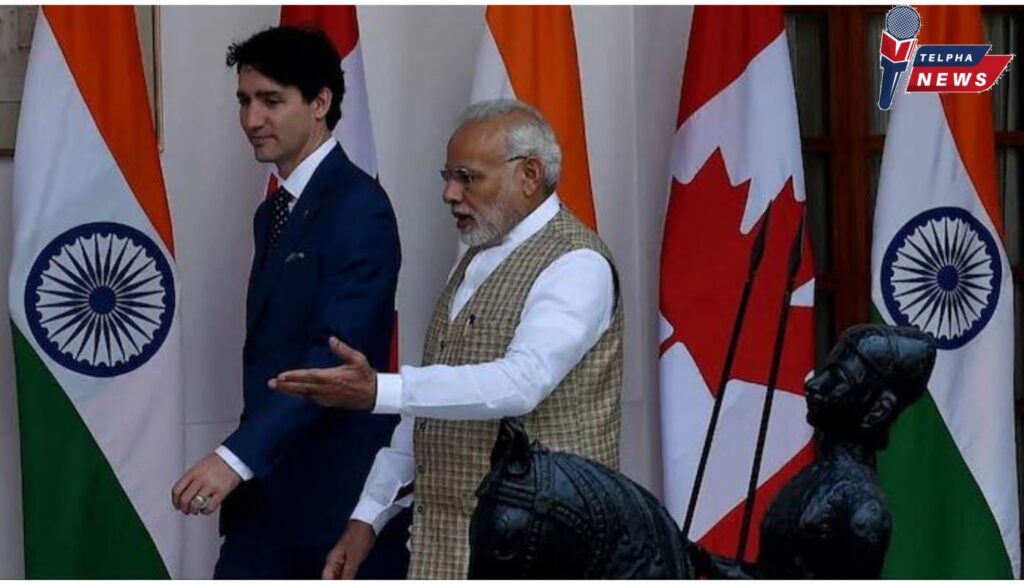
Introduction
In a recent development that has stirred diplomatic waters, Canada’s Minister of Public Safety, Dominic A. LeBlanc, has publicly condemned the promotion of violence following the emergence of posters in Vancouver depicting the assassination of India’s former Prime Minister, Indira Gandhi. This incident has further strained the already tense relationship between India and Canada, exacerbated by accusations of India’s involvement in the killing of Khalistani terrorist Hardeep Singh Nijjar.
The Incident: Posters in Vancouver
Last week, posters showing the gruesome assassination of Indira Gandhi were put up by Khalistan supporters in Vancouver. Gandhi, a pivotal figure in Indian politics, was assassinated by her Sikh bodyguards in 1984, a historical event that still resonates deeply within the Indian community. The posters have been seen as an attempt to glorify violence and instill fear among Hindu Canadians, igniting widespread outrage.
Canadian Government’s Response
In response to the incident, Minister Dominic A. LeBlanc took to X (formerly Twitter) to assert that “the promotion of violence is never acceptable in Canada.” His statement underscores the Canadian government’s stance against any form of violence or intimidation, particularly those actions that could incite communal discord.
Concerns from the Indo-Canadian Community
Chandra Arya, an Indian-origin Canadian lawmaker, also expressed his concerns regarding the posters. Arya highlighted that such actions by Khalistan supporters aim to spread fear among Hindu Canadians, a tactic reminiscent of previous threats and intimidation attempts. He urged Canadian law enforcement to take swift action to prevent further escalation.
Historical Context and Current Tensions
The backdrop to these events is a series of tensions between India and Canada, particularly around the activities of Khalistani separatists. India has long criticized Canada for allowing a platform to anti-India elements, a sentiment that has intensified following the murder of Hardeep Singh Nijjar. Canadian Prime Minister Justin Trudeau’s allegations of Indian involvement in Nijjar’s killing have only deepened the diplomatic rift.
Impact on Indo-Canadian Relations
The depiction of Indira Gandhi’s assassination and the subsequent reactions reflect broader issues in Indo-Canadian relations. These incidents not only affect diplomatic ties but also have real-world implications for communities in Canada. The fear and mistrust sown by such acts of violence and their glorification can lead to heightened communal tensions and disrupt the social fabric.
The Role of Khalistan Supporters
Khalistan supporters, such as Gurpatwant Singh Pannun of Sikhs for Justice (SFJ), have been at the forefront of promoting a separate Sikh state. Their activities, which include public displays of violence and inflammatory rhetoric, pose significant challenges for both Canadian and Indian authorities. The portrayal of Indira Gandhi with her bodyguards-turned-assassins is a stark example of their provocative tactics.
Moving Forward: A Call for Unity and Law Enforcement
As tensions continue to simmer, it is crucial for Canadian authorities to address these issues decisively. Minister LeBlanc’s statement is a positive step, but tangible actions are necessary to ensure the safety and security of all communities. Law enforcement agencies must act swiftly to prevent further acts of intimidation and violence, thereby fostering an environment of peace and unity.
Conclusion
The incident in Vancouver serves as a reminder of the delicate nature of international relations and the importance of addressing communal tensions with sensitivity and firmness. Canada’s condemnation of violence promotion is a critical stance, but ongoing vigilance and proactive measures are essential to maintain harmony and protect the rights of all citizens. In these turbulent times, a commitment to justice and mutual respect remains the cornerstone of peaceful coexistence.